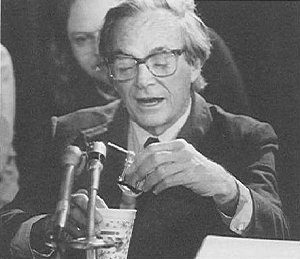
.ice or fire..either way we're doomed
Posted on 01/16/2007 9:42:32 AM PST by BurbankKarl
As much as 70% of oranges still on California trees may have been destroyed by record cold temperatures across the state, officials and farmers said Monday.
It will take days to make a full assessment of the losses to the $1.1-billion orange crop. But the state's top agriculture official said Monday that damage to fruit and vegetable crops overall will be greater and more widespread than in the devastating freeze of 1998, which destroyed $700 million worth of produce across California.
"This cold incident will surpass the 1998-99 freeze," said A.G. Kawamura, secretary of the California Department of Food and Agriculture. Losses, although greatest in the San Joaquin Valley, seem to be spread through many parts of the state that typically have been immune to freezes, he said, "from San Diego … to the coast."
In addition to citrus fruits, growers are reporting damage to other crops, including leafy greens, avocados, strawberries and blueberries, said Kawamura, who has spent the last few days visiting farms from Fresno to Ventura.
Some farmers are reporting damage to 100% of their crops, and many others say more than half their produce is destroyed, he said.
The orange crop was particularly hard-hit because growers had picked only 30% of the state's 193,000 acres of orange groves before the freeze.
(Excerpt) Read more at latimes.com ...
Call FEMA and let them shell out some credit cards to the "poor" farmers and their "cheap labor."
Why? Did they steal your job as an orange picker.
"Turn those machines back on....and SELL!"
Actually, this happens every 7 or 8 years, and should be something that is taken into account when planning crops. This is a normal part of weather cycles--farmers know it WILL happen periodically, and they should adjust accordingly.
I don't feel sorry for farmers who don't make allowances for this, and there shouldn't be any bailout by the taxpayers.
Our yard here in Phoenix, AZ has been substantially damaged the past few days from the freeze this area is experiencing.
No, it's not. The Florida citrus orchard line was moved about 100 miles south and the coastal mangroves at about the Tampa latitude north were nearly wiped out by the severe freeze in 1986 (which also doomed the Challenger Space Shuttle). They used to grow citrus as far north as Gainesville. Not any more. But not because there are freezes every year now; because the threat of one makes it economically unwise to replant citrus. And that's where agricultural climatologists make their money (and lose it for others ;-)
The reason I say that: you can always have a deep freeze that's unusual in winter. It's like the 100-year storm (which seems to happen every 25 years or so). A 70 deg. F day in New York in January might be just as unusual, but it doesn't cause the same damage so it doesn't get the same press (though the press is noticing the East Coast warm temps, too).

.ice or fire..either way we're doomed
Figure of interest:

Nope -- and you might find what actually happened very interesting, definitely a case of "for want of a nail". The main cause, publicized widely by Richard Feynman at the Challenger hearings, was that the O-rings designed to prevent the solid fuel boosters from releasing hot gases as they burned got too stiff when cold. The joint design was flawed, so when the O-rings were too cold, the gases leaked out. During the launch, the hot gases that weren't restrained by the stiffened O-rings impinged on the main fuel tank (liquid hydrogen), burned through, and ignited it.
At the hearings, Feynman dipped some O-ring material into a cup full of ice water and showed what happened to it when it was cold. Probably the most remembered moment of the hearings. Here's a picture of it (the WWW is so amazing at times):

According to the associated text, the previous lowest temperature at launch was 53 degrees F. For the Challenger launch, it was around 26-29 degrees F.
here is a 4 day summary....and these are for SoCal cities, not the farming areas...which are colder
RECORD EVENT REPORT
NATIONAL WEATHER SERVICE LOS ANGELES/OXNARD, CA
300 PM PST TUE JAN 16 2007
...PRELIMINARY RECORD LOW TEMPERATURES IN THE SOUTHLAND...
STATION NEW RECORD
BURBANK 32 33 SET IN 1954
LONG BEACH 34 35 SET IN 1963
LANCASTER 09 14 SET IN 1963
PALMDALE 15 17 SET IN 1949
SANTA BARBARA APT 24 29 SET IN 1987
PASO ROBLES 16 20 SET IN 1963
It could if the buds start swelling.
Peaches will be more adversely affected.
Buy orange juice futures!
Is there such a thing? It's probably too late to get in early anyway.
Warm temps in the north only cause damage if followed by cold after plants have either dehardened (remain dormant but more cold-sensitive) or actually broken dormancy (bud swell.)
Florida citrus growers have probably found the "100 year freeze line" somewhere south of Tampa.
Gainesville is probably warm enough for citrus trees to survive 19 years out of 20...but 20 years isn't very long for a commercial citrus grower to have a living orchard, in that 20th year you might have a freeze bad enough to kill the trees outright. I'd guess about once a decade it's cold enough in Gainesville to at least destroy a citrus crop even if the trees would survive. You could plant them in your yard there with the realization they may perish eventually but it's no longer considered worth it to grow them economically.
I am astounded.
You shouldn't be.
;-)

DAMN COLD.
< |:)~



SANTA CLARITA - A brief snow and hail storm blew across the Santa Clarita Valley this morning, sending school children to their classroom windows and resulting in a few spinouts on local freeways.
Disclaimer: Opinions posted on Free Republic are those of the individual posters and do not necessarily represent the opinion of Free Republic or its management. All materials posted herein are protected by copyright law and the exemption for fair use of copyrighted works.